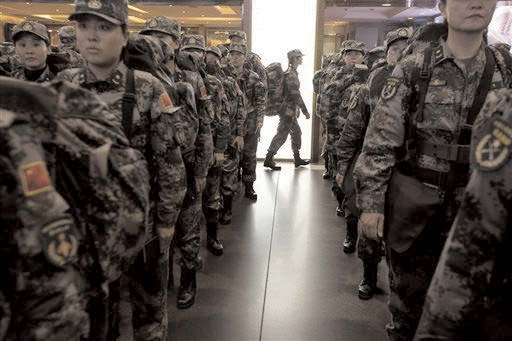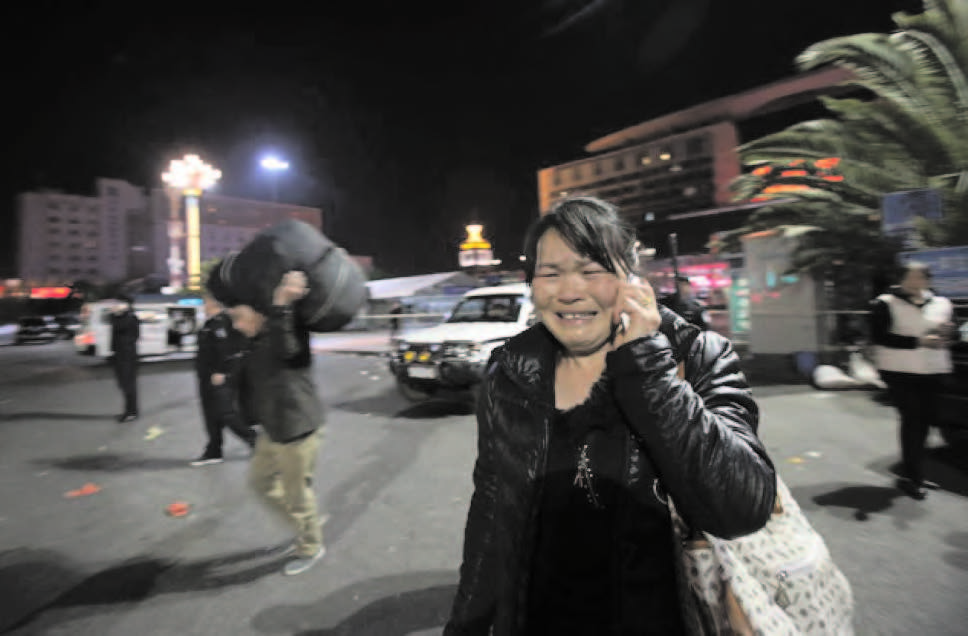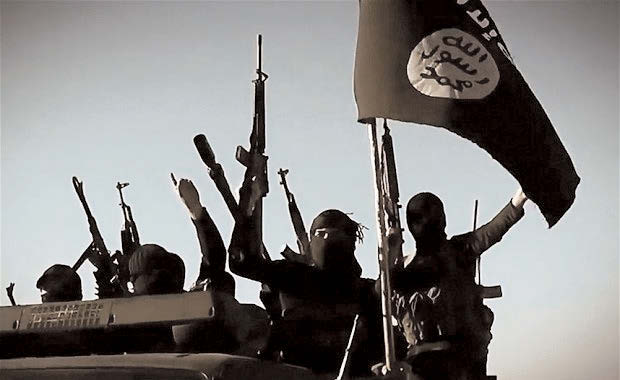
BEJING (TIP): The killings of Chinese citizens by Islamic militants in Syria and Mali place President Xi Jinping in a quandary: How can Beijing respond effectively without betraying its strict stance against intervention?
The dilemma underscores the tension between China‘s desire to be seen as a leading global power and its desire to maintain its own independent foreign policy while shunning the US-led Western liberal democratic political agenda.
How Xi will square that ideological circle and what concrete actions he’ll take in response could mark an inflection point in Chinese diplomacy. More likely, analysts say, he’ll stick to China’s long-established neutrality while possibly taking limited behind-the-scenes measures to help in the global campaign against Islamic extremists.
“For China, intervention would be a real game-changer,” said Australian National Security College expert Michael Clarke.
“Frankly, I think Xi is in a very difficult position here.”
Regardless of what it chooses to do, China has increasingly found itself confronted by Islamic militant groups.
Three Chinese – all high-ranking executives with the state-owned China Railway Construction Corp.’s international group -were among the 19 victims of last week’s attack on the Radisson Blu hotel in Mali’s capital, Bamako. The al-Qaida-linked group known as Al-Mourabitoun – or The Sentinels -has claimed responsibility for the attack.
That followed the killing of 50-year-old Beijing native Fan Jinghui by Islamic State group extremists. Xi vowed to bring Fan’s killers to justice, but China has offered no details on how it plans to do so.
Foreign Ministry spokesman Hong Lei told reporters Monday that China was working to “increase our emergency reaction and early warning capabilities” to confront threats against overseas personnel and assets.
Calls online from the Chinese public dismissing Beijing’s response and calling for action against militants have been suppressed by China’s Internet censors. With more Chinese than ever traveling abroad for work, study and travel, the government has been under growing pressure to identify threats and ensure their safety through its consulates and embassies.
al-Qaida, and more recently IS leader Abu Bakr al-Baghdadi, have also threatened China over what they call the oppression of the Muslim Turkic Uighur people native to the northwestern region of Xinjiang. China says it is fighting a separatist insurgency in Xinjiang, and has been eager to equate that fight with the international struggle against extremist groups including IS and al-Qaida. Some critics see little evidence of substantial links between China’s Muslim Uighur groups and groups such as IS.
Chinese forces, some equipped with flamethrowers, recently concluded a 56-day operation to kill or capture 30 suspects in a deadly attack on a Xinjiang coal mine. China blamed the attack on insurgents it says were directly led by an unidentified overseas group.
A top Xinjiang official, Xi Hairong, this week warned that the continuing influence of “pan-Islamism and pan-Turkism thoughts” placed Xinjiang in “an active period for violent and terrorist activities and an acute period in the battle against separatists.”
China says Uighur extremists have links to al-Qaida and that some have traveled to Syria to fight alongside IS, although Clarke and other outside observers question those claims.
And while China’s campaign against Uighur extremism has been relentless, it has shown no appetite to apply such tactics when threatened abroad.





Be the first to comment